Violence against women continues to be dire in the Pacific region
30th October, 2013
A budding young female politician in Fiji has received rape threats after deciding to throw her hat in the ring for elections next year.
The young woman activist has not been put off standing, but her experience is part of the Pacific region’s dire record on violence against women, a record which remains one of the worst in the world.
The violence issue was high on the agenda of the 12th Triennial Conference of Women held in the Cook Islands this week.
Sally Round was there.
Behind the laughter at this 200-strong gathering of Pacific women leaders there are some harrowing stories. A representative of young Pacific women, Jasmine Kaur, revealed to the gathering her own experience of sexual abuse.
“JASMINE KAUR: I’ve been a victim of ongoing child sexual abuse for a number of years. And I really didn’t know what was happening to me because of this whole Pacific culture that we have in terms of not having to be able to talk to your children about sex. The whole taboo issue is what I really blame for not being able to be empowered enough or educated enough on what was happening to me, really. When I went to Form 6 and started reading a lot more and getting a lot more involved in the volunteering work, I overheard something about rape, so, inquisitively, I went and checked it online and that’s when I realised ’Oh, this has been happening to me for a number of years’.”
Melissa Alvarado heads the region’s Ending Violence Against Women programme for the United Nations agency UN Women. She says a milestone has been reached in the growth of data on the issue, but the situation is dire.
“MELISSA ALVARADO: Some countries have as high as the 60-percentile range, 64 percent, 68 percent of women between the ages of 15 and 49 reporting experiencing physical or sexual violence in their lifetime. Globally, the average, as confirmed by the World Health Organisationjust this year, is one in three.”
Armed with the numbers, many Pacific countries are advancing legislation, policies and national plans specifically focusing on violence against women. In Guam the looming transfer of thousands of US troops to the territory from their present base in Japan is seen as a threat to the safety of women and girls. The US territory’s minister responsible for women’s affairs, Judith Won Pat, says although the transfer date has not been set, local women’s organisations are galvanising themselves now following Okinawa’s experience of US troops.
“JUDITH WON PAT: There’s been a lot of violence against women – acts taken against young girls, in particular. So we wanted to make sure that that is an issue that is going to, and should be, addressed by the military, by congress and even the people of Guam.”
Roshika Deo has announced her intention to stand for Fiji’s elections, promised for next year. She’s the first young woman to throw her hat in the ring.
“ROSHIKA DEO: There was a lot of retaliation on social networking sites. There were threats. There’s a lot of racism coming out, rape threats.”
But the budding politician who wants to stand as an independent is not put off by the hostility.
“ROSHIKA DEO: It basically tells me that our society is still very patriarchally entrenched. There’s still a lot of misogyny around and representation is something we really have to work hard to get, and democracy for that matter.”
“WOMAN ON MICROPHONE: The following tribute is dedicated to many women who have shaped our women’s movement and a new generation of feminists in our Pacific Islands region.”
The conference is a three-yearly chance to take stock of women’s issues and plan for the future. This year it also looked back at the pioneers of the women’s movement in the Pacific. Researcher, Diane Goodwillie says the movement against gender violence came about in the early 80’s.
“DIANE GOODWILLIE: They were branded as a Western organisation. And these were Pacific Island women. These were women in Fiji. And they were told ’That’s a Western woman’s idea’. But they knew from their own experiences there was a big need… that there was rape and domestic violence and there was a need to provide services.”
Conference delegates heard that new pressures like climate change can also play out down the line in violence against women. A Marshall Islands representative Yoshiko Yamaguchi says women bore the brunt of the country’s severe drought earlier this year, not being able to create traditional crafts for sale, worrying about their family’s health and simply not being able to do daily household jobs.
“YOSHIKO YAMAGUCHI: Because their role in the household is defined by what they do, such as their chores. When they were not able to do this because of lack of water it caused identity issues. So, for example, in my neighbourhood I saw there was a lot more cases of substance abuse and violence because women believe most often… Women and men in RMI believe that if women are not able to do these chores in the households then the men have the right to discipline them.”
Kiribati ranks highest in the region with a nearly 70% rate of violence against women. The country’s Minister of Education Maere Tekanene says the country is using that ranking to drive messages home in communities, that domestic violence affects children’s education.
“MAERE TEKANENE: We don’t point at people saying ’Your homes are violent’. But we just say ’Where would the children be?’ At the same time we’re trying to educate the community that if there is domestic violence in the home, what happens to a child if he goes or she goes to school? We can anticipate that his or her learning doesn’t take place. He or she’ll be quiet, he or she’ll be not asking questions. The learning isn’t functioning at all.”
Several countries in the Pacific have enacted laws to control domestic violence and violence against women in general. Judith Won Pat says Guam is toughening up on the problem.
“JUDITH WON PAT: Specific to women, absolutely. We’ve stepped up to the plate, introduced legislations. There’s even one now – the three strikes and you’re out – three convictions and that’s it, you’re locked up for life. That’s how stringent the laws have become as a result of the increase that we’re seeing when women will go into their cars in the shopping mall and they would be kidnapped and then going into homes and raping young girls…”
The young sexual abuse survivor Jasmine Kaur called for the decision-makers at the conference to introduce early sex education cross the region.
“JASMINE KAUR: I think that comprehensive sexuality education needs to be incorporated into the school curriculum in every Pacific island nation and moreover because children need to learn at a very young age what’s really happening to them, what’s happening to their bodies. What are the good touches? What are the bad touches? And it has a ripple effect and will curb our ’violence against women’ issues.”
Merilyn Tahi of the Vanuatu Women’s Centre says a nine year old programme engaging with male community leaders is helping spread the anti-violence message.
“MERILYN TAHI: In August of this year, for example, we went to Tanna. Tanna Island is one that people fear because they think that the men are aggressive. But we went there. The chiefs from there… Their council of chiefs is known as the Nikoletan Council of Chiefs. And they brought in together their members – about 30 – and sat around with us for about six days. And we talked about gender, violence and women, domestic violence, sexual assaults, human rights, our family protection act for awareness. And they now have said, ’OK, the island is open. You can come in anytime you want. Come into our communities’. But also they are taking that message into their individual communities. And already invitations have come from them one month after for us to go and talk to their communal leaders. So that’s how we want to attack it, because in the country if you change those leaders, they have a very strong influence on their people.”
But the CEO of the International Women’s Development Agency, Joanna Hayter, says it is time for a sea change in the approach to violence against women.
“JOANNA HAYTER: If we’re serious about shaping the future and looking at how we take this on in the world, we’ve got to stand back, boys have got to take over. Everyone keeps saying ’The Ministry of Women’s Affairs’ or we’ve now got a domestic violence officer sitting in our team, who is a woman, as if a single person or a team in women’s affairs is best placed to talk to men about their attitudes and behaviours. I reckon it’s time to create a ministry of men’s affairs and make that their number one business.”
The UN Women’s regional specialist on the issue Melissa Alvarado says better data means more clues on how to break the cycle of violence in the Pacific.
“MELISSA ALVARADO: So the studies have revealed that childhood experiences of violence are in fact quite relevant to adult experiences of violence. So whether it’s a male or a female child who experiences violence growing up then that person is more likely, if a boy, to become a perpetrator of violence or if a girl become a women who then experiences physical or sexual violence.”
Surveys will be conducted in five more Pacific Island countries in the next few years.
News Content © Radio New Zealand International

